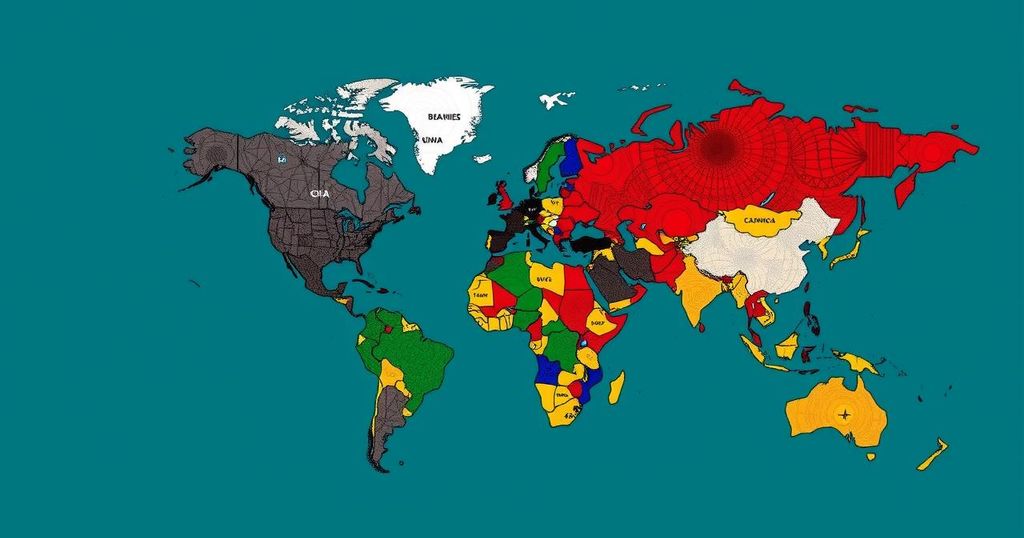The Commonwealth nations convened in Samoa to address key issues of climate change and reparations for Britain’s historical involvement in the transatlantic slave trade. Leaders underscored climate change as an urgent existential threat, while discussions around reparations gained momentum, particularly among Caribbean and African nations seeking accountability from former colonial powers.
Leaders from the Commonwealth nations convened for a significant summit in Samoa, focusing on pressing global issues, particularly climate change and discussions regarding reparations related to Britain’s historical involvement in the transatlantic slave trade. The Commonwealth Heads of Government Meeting, which began on Monday, brought together representatives from 56 countries, including King Charles of Britain, underscoring the continued relevance of historical ties between nations. Climate change was highlighted as a critical concern, especially for small island states that are acutely threatened by rising sea levels. As per United Nations Secretary-General Antonio Guterres, ocean temperatures in the Pacific Islands are increasing at a rate that is threefold compared to the global average, placing these communities at greater risk. Australian Foreign Minister Penny Wong emphasized, “Climate change is an existential threat. It is the number one national security threat. It is the number one economic threat to the peoples of the Pacific and to many members of the Commonwealth.” In light of these challenges, island leaders are expected to release a declaration addressing ocean preservation during the summit. Additionally, the topic of reparations for the legacy of colonial slavery remains contentious. Various Caribbean leaders and the African Union have been campaigning for the UK and other former colonial powers to take responsibility for the past. Despite British Prime Minister Keir Starmer’s statement that the issue of reparations will not be formally presented, he expressed a willingness to engage in dialogue with interested party leaders. CARICOM’s establishment of a commission to pursue reparations illustrates the increasing traction of this movement. Proponents argue that the legacies of slavery contribute to ongoing racial disparities, whereas opponents maintain that historical injustices should not result in present liabilities. Kingsley Abbott, director of the University of London’s Institute of Commonwealth Studies, remarked on the significance of the summit as a platform for addressing these matters, stating, “Whenever those affected by atrocities ask to talk, there should always be a willingness to sit down and listen.” The grim history of the transatlantic slave trade, wherein over 12.5 million Africans were atrocity-enduring abducted and forced into servitude, continues to resonate, as discussions regarding reparations and climate change intersect, beckoning attention and collective action from Commonwealth nations.
The summit in Samoa serves as a pivotal meeting for Commonwealth nations, focusing on two critical contemporary issues: the ramifications of climate change and the implications of historical injustices linked to the colonial era, particularly the transatlantic slave trade. Many small island nations under the Commonwealth umbrella are vulnerable to climate change, with specific concerns regarding rising sea levels. Concurrently, discussions surrounding reparations for slavery are gaining momentum, reflecting a broader understanding of the socio-economic ramifications of historical injustices perpetuated by colonial powers.
In conclusion, the Commonwealth Heads of Government Meeting in Samoa exemplifies the urgent discourse surrounding climate change and reparations for slavery. With leaders urging strong action against climate threats and advocating for reparations, the summit marks a critical juncture for addressing historical injustices influencing current inequalities. The engagement from multiple nations highlights the necessity for dialogue and collective action to confront these challenging issues.
Original Source: www.voanews.com






